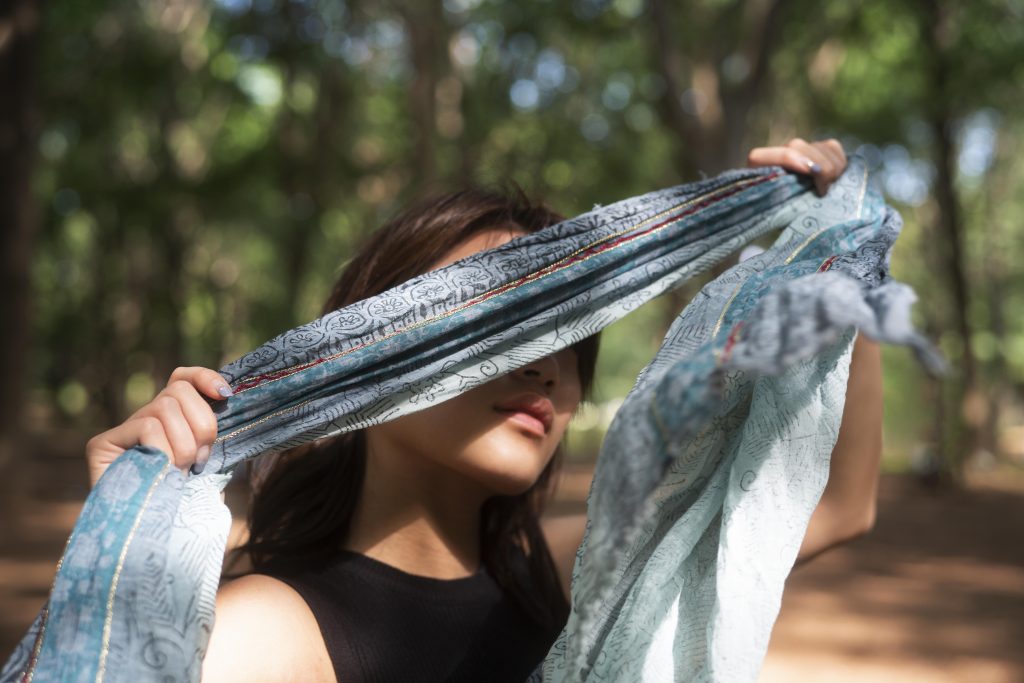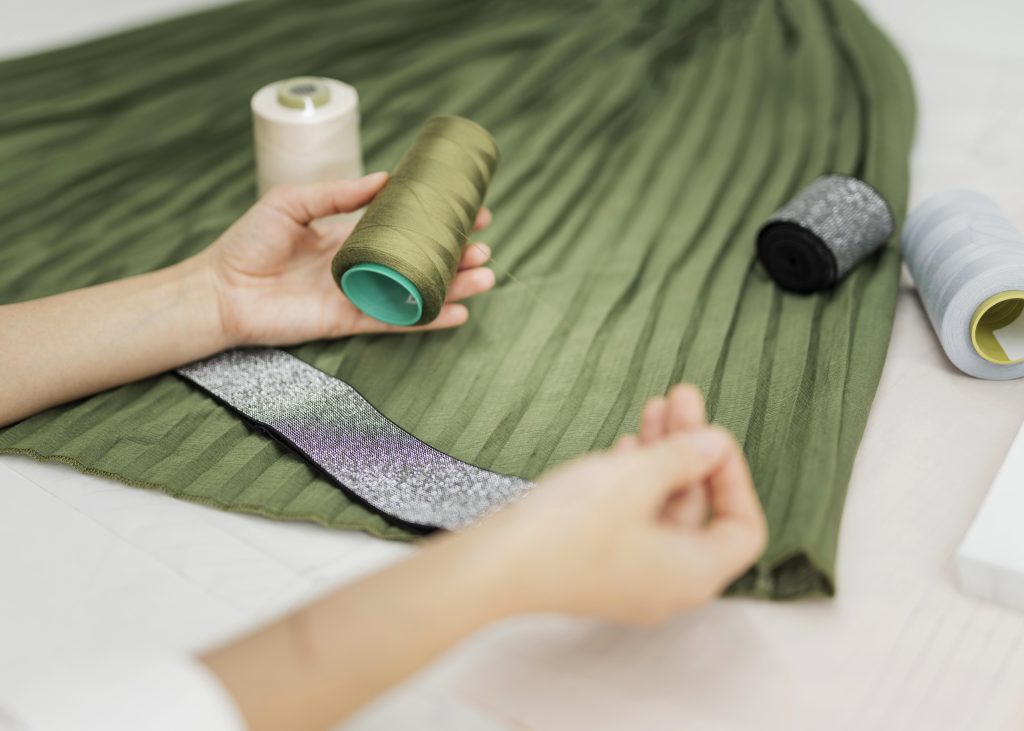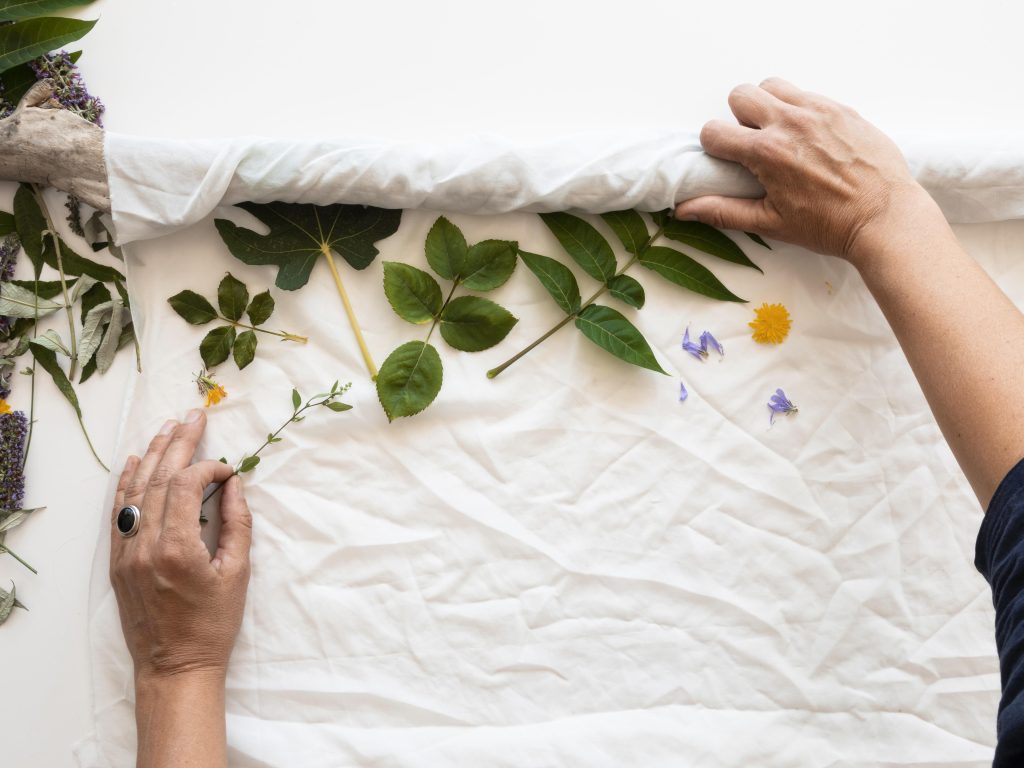The textile industry is not only about clothing. It also lies at the intersection of culture, lifestyle, and sustainability. People express their sense of aesthetics through what they wear. Moreover, they also reflect values regarding environment, health, and quality. Therefore, clothing choices do not serve only as a visual statement. Rather, they also carry a value-driven message. In addition, sustainable choices strengthen individual responsibility, and as a result, they enhance social awareness. Especially today, success in the textile industry is not measured solely by production volume; instead, it is defined by the added value created through sustainability and innovative solutions. Furthermore, Marsala Tekstil acts with this awareness, securing a strong position both in Bursa and worldwide. Consequently, with its innovative vision, the company continues to lead in fashion and textiles.

Table of Contents
- Introduction
- The Importance of Sustainable Fabrics
- Organic Cotton Products
- 2025 Fashion Trends and the Textile Industry
- Exporting from Bursa to the World
- Marsala Tekstil’s Approach
- Future Perspective
- Conclusion
- Frequently Asked Questions
Introduction
Textiles reflect the cultural memory of societies. The texture, color, and design of a garment reveal the traditions, technological level, and environmental outlook of the region where it is produced. For this reason, textiles are not only a commercial activity but also a cultural form of production. Moreover, Marsala Tekstil combines Bursa’s strong textile heritage with sustainability principles, thereby gaining trust both in local and international markets. In addition, the company not only offers products but also promotes a lifestyle based on ethical values. As a result, Marsala Tekstil distinguishes itself as a remarkable brand in the sector.
The Importance of Sustainable Fabrics
In recent years, climate change and environmental challenges have reshaped the future of fashion and textiles. Traditional production methods consume water rapidly, waste energy, and pollute the environment with chemicals. In contrast, sustainable fabrics reduce these problems significantly. Moreover, Marsala Tekstil adopts eco-friendly methods in its production processes. Therefore, this approach protects natural resources and simultaneously strengthens sustainability.
The main advantages of sustainable fabrics include:
- Reduced water and energy consumption in production
- Lower waste generation; in addition, enhanced support for recycling, thus contributing to the environment
- Minimized use of chemicals in production
- Long-lasting fabrics that slow down overconsumption
- Moreover, sustainable production practices reduce the carbon footprint and thereby reinforce an eco-friendly approach
Consumers who choose clothing made with sustainable fabrics make eco-conscious decisions. Furthermore, they gain long-term economic benefits, thus creating value for both producers and consumers. Consequently, this approach highlights the unique difference of Marsala Tekstil in the global textile industry.
Organic Cotton Products
Organic cotton products form the very foundation of sustainable fashion. Traditional cotton farming consumes vast amounts of water and relies heavily on chemical fertilizers, harming both the environment and human health. In contrast, farmers cultivate organic cotton using natural methods. Moreover, this approach protects the environment while also safeguarding human health. As a result, organic cotton products provide significant benefits to sustainable living. Additionally, they strengthen ecological balance and support ethical fashion values.
The benefits of Marsala Tekstil’s organic cotton products include:
- Hypoallergenic and skin-friendly
- Natural breathability and comfort
- Durable and long-lasting quality
- Eco-friendly and safe for health
Organic cotton products represent more than just a fashion choice; instead, they symbolize a sustainable lifestyle. Marsala Tekstil makes these products central to its collections, embracing a healthy, eco-friendly, and innovative approach. In particular, the company expands the use of organic cotton across a wide range of applications, from baby clothing to home textiles.

2025 Fashion Trends and the Textile Industry
Every year, changing fashion trends shape the direction of the industry. By 2025, the foundation of fashion will be sustainability and digitalization. Personalized products through digital printing, unique designs created with recycled fabrics, and specialized collections for plus-size clothing will stand out. Moreover, consumers will evaluate fashion not only through aesthetics but also by ethical values.
Key 2025 fashion trends:
- Personalized digital prints
- Use of recycled polyester and cotton
- Exclusive plus-size collections
- Minimalist and functional designs
- Eco-friendly and ethical clothing lines
- Transparent production processes to build brand trust
These developments make it essential for brands to deliver not only products but also values. Consequently, Marsala Tekstil enriches its collections with sustainable and innovative designs, positioning itself as a leader in this transformation.
Exporting from Bursa to the World
Bursa is one of Turkey’s leading textile capitals. The city has a deep-rooted textile heritage. Combined with modern technology, this strength has transformed it into a strong player in global markets. Marsala Tekstil carries this production power to the world, exporting to Europe, America, and the Middle East.
Factors behind Marsala Tekstil’s export success:
- Wide product variety with high quality
- Flexible production capacity supported by modern facilities
- Strong logistics infrastructure
- Active participation in international fairs and fashion weeks
- Long-term global partnerships
With this strategic approach, Marsala Tekstil has become not only a local producer but also a globally trusted brand.
Marsala Tekstil’s Approach
Marsala Tekstil integrates sustainability, customer satisfaction, and innovation within its production philosophy. The company provides tailored solutions to meet customer needs. As a result, it acts not only as a producer but also as a reliable partner. This approach strengthens brand credibility and long-term customer loyalty.
Core principles of Marsala Tekstil:
- Sustainability-focused production
- Customer satisfaction as a priority
- Commitment to high quality standards
- Close monitoring of global trends
- Innovative design perspective
These values consolidate Marsala Tekstil’s strong position in both Bursa and international markets.
Future Perspective
The textile industry will continue to evolve rapidly in the coming years. Digitalization, AI-powered production, and sustainable raw materials will dominate this transformation. Marsala Tekstil is already adapting to this change by investing in future-oriented production technologies and creating new strategies for global markets.
Future goals include:
- Greater use of recycled raw materials
- Expansion of digital production technologies
- Entry into new export markets
- Growth of brand recognition worldwide
- Stronger integration of fashion and technology
With this vision, Marsala Tekstil aims to remain not only a leader today but also a pioneer of the future.

Conclusion
The textile industry is now evaluated not only by production volume.It is also measured by sustainability and innovation. Marsala Tekstil leads the sector with organic cotton products. The company also stands out with sustainable fabrics and innovative practices. Its vision extending from Bursa to the global stage enhances its reliability and reputation.In conclusion, Marsala Tekstil stands as a strong brand of today. As a result, it will also remain a leading brand of the future.
Frequently Asked Question
What products does Marsala Tekstil offer?
The company provides organic cotton products, sustainable fabrics, and tailored textile solutions.
What makes Marsala Tekstil different?
It stands out with its sustainability-focused production, innovative vision, and customer-first approach.
Does Marsala Tekstil export from Bursa?
Yes. Marsala Tekstil exports to Europe, America, and many other global markets.
